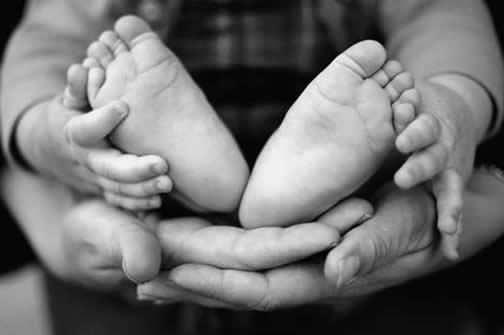Please note that this website is currently being updated.
The Resilience Research Lab is one of the research labs operating out of the Psychology Department at Vancouver Island University (formerly known as Malaspina University-College), located in Nanaimo, British Columbia, Canada.
Our research projects investigate resilience within our community and internationally. The lab supports the collaboration of students, faculty supervisors, community members and international partners.
What is Resilience?
Psychological resilience can be defined as:
- Positive adaptation in the context of significant adversity or risk
- Successful adaptation despite challenging or threatening circumstances
- Positive developmental outcomes despite high-risk status
- Sustained competence under stress and recovery from trauma

Definitions of resilience may vary but the most important conceptual element is that resilience is best understood as a dynamic process that evolves over time. This suggests that rather than being a static, individual characteristic, resilience is a process that can be “cultivated” given sufficient awareness, motivation and access to protective factors. That is, resilience is the result of individuals being able to interact with supportive environments—which includes other people, systems and policies—in a way that promotes well-being or protects them against the influence of risk factors. These processes can include individual coping strategies but are also associated with supportive families, schools, communities and culturally relevant practices and policies that make resilience more likely to occur. Beyond resilience of an individual, the concept of resilience has also be applied to communities, businesses, organizations and governments. Masten (2016) defined resilience "as the capacity of a system for successful adaptation to disturbances that threaten system function, viability or development" (p.297).
What Are Types of Adversity or Risk?
If we focus in on the psychological resilience of children, for example, what types of disturbances threaten their development? Children around the globe are faced with trying to survive through conflicts, wars, and displacement, like those seen in Ukraine, Sudan, Gaza, Syria and Iraq. Some of these children have had to deal with the death of their parents or other important family members and friends. Some children are orphaned due to HIV/AIDs. Furthermore, some children are also affected by a lack of education, as is evident in places like India, Uganda, and Cambodia.
Closer to home, there are children who grow up in an environment where they experience physical or emotional neglect and abuse. Some witness domestic violence and have parents who suffer from psychiatric disorders or drug addictions. Others experience their families breaking up and others must cope with high levels of poverty.
Some children do not recover well from these adversities, yet others do. We have children who, despite facing potentially overwhelming challenges, are not only surviving but are also thriving and growing into adulthood, while still retaining a sense of excitement and hope as they look toward the future.

In order to help these children—to advocate for them and help them become their own advocates—we need to continue to find ways to foster resilience. For many years resilience research focused on overcoming adversity as a singular individual problem that attempted to build strengths within the individual (Werner, 1968). Over the last 15-20 years, our understanding of resilience has grown to include a look at how environments and policies contribute to resilience as well (Ungar, 2019).
The International Resilience Project (IRP), based in Halifax, Nova Scotia at Dalhousie University, studied resilience around the world. In particular, the IRP investigated resilience within the context of values and expectations of the community and culture. This study found that beyond individual characteristics, resilience occurs as a result of the interaction among culturally relevant services and policies in a community. Along the same lines, we want to study and contribute to resilience in our community.

What Are The Goals of the Resilience Research Lab?
The Resilience Research Lab (RRL) is run by Vancouver Island University students and faculty supervisors. With this diversity comes a unique combination of skills, knowledge and interest where all members of the RRL work together to achieve several goals, including:
Supporting students in their research endeavors
We want to help students develop their knowledge, skills, and experiences so that they may conduct research in the area of resilience. We want students to have the opportunity to be a part of the resilience research community, and contribute to the understanding of resilience. Lab students also come together to help their peers complete their Honours Theses.
Sharing knowledge about resilience with the community
We want to help foster resilience in our university community and our local community. We pursue this goal by partnering with members in the community who help at-risk populations by sharing resources and assisting with program development.
Helping to develop preventative programs
We do not want to catch vulnerable populations as they are struggling down the raging river; we want to catch them before they are pushed into that river.
This goal can be achieved by building the supports within families and communities before people are faced with adversity. To this end, we formed a Community Advisory Board consisting of members from the local community who work with children and families when the lab first started. This board allowed us to connect with our community and build a foundation for the relationships we have developed in the community.
Recommended Reading
Bonanno, G. A. (2004). Loss, trauma, and human resilience: Have we underestimated the human capacity to thrive after extremely aversive events? American Psychologist, 59(1), 20-28.
Dweck, C. (2000). Self-Theories: Their role in motivation, personality, and development. Philadelphia, PA: Psychology Press.
Herrman, H., Stewart, D. E., Diaz-Granados, N., Berger, E. L., Jackson, B. & Yuen, T. (2011). What Is resilience? Canadian Journal of Psychiatry-Revue Canadienne de Psychiatrie, 56(5), 258-265.
Him, C. (2001). When Broken Glass Floats. New York, NY: WW Norton.
Jay, M. (2017). Supernormal: The Untold Story of Adversity and Resilience. New York, NY: Twelve.
Luthar, S. S. & Cicchetti, D. (2000). The construct of resilience: Implications for interventions and social policies. Development and Psychopathology, 12(4), 857-855.
Masten, A.S. (2015). Ordinary Magic: Resilience in Development. New York, NY: Guilford Press.
Masten, A. S. & Narayan, A. J. (2012). Child development in the context of disaster, war, and terrorism: pathways of risk and resilience. Annual Review of Psychology, 63, 227-257.
Rodin, J. (2014). The Resilience Dividend: Being Strong in a World Where Things Go Wrong. New York, NY: The Rockefeller Foundation.
Rutter, M. (2012). Resilience as a dynamic concept. Development and Psychopathology, 24(2), 335-344.
Ungar, M. (2005). Handbook for working with children and youth: Pathways to resilience across cultures and contexts. Thousand Oaks, California: Sage Publications.
Ungar, M. (2011). The social ecology of resilience: Addressing contextual and cultural ambiguity of a nascent construct. American Journal of Orthopsychiatry, 81(1), 1-17.
Ungar, M. (2019). Change your world: The Science of Resilience and the True Path to Success. Toronto, ON: Sutherland House.
van Breda, A. (2018). A critical review of resilience theory and its relevance for social work. Social Work, 54 (1).
Werner, E. E., Bierman, J. M., French, F. E., Simonian, K., Connor, A., Smith, R. S. & Campbell, M. (1968). Reproductive and environmental casualties: A report on 10-year follow-up of children of Kauai pregnancy study. Pediatrics, 42(1), 112-117.
Werner, E. E. (1995). Resilience in development. Current Directions in Psychological Science, 4(3), 81-85.
Zolli, A. & Healy, A. (2013). Resilience: Why Things Bounce Back. New York, NY: Simon and Schuster.
